Chikonzi writes exclusively for kaos about why he has such a problem with "12 Years A Slave". London-based Zimbabwean Chikonzi teaches psychology and sociology.
Torture Porn
 I REMEMBER WHEN Roots was first screened on Zimbabwean TV (and was repeated endlessly thereafter). Suddenly everyone started saying "Boss", mimicking characters on the show. It's an example of how audiences respond to fictionalised respresentations of history, how T.V. and film can inadvertently trivialise the subjects they purport to honour.
I REMEMBER WHEN Roots was first screened on Zimbabwean TV (and was repeated endlessly thereafter). Suddenly everyone started saying "Boss", mimicking characters on the show. It's an example of how audiences respond to fictionalised respresentations of history, how T.V. and film can inadvertently trivialise the subjects they purport to honour.That's what's going to happen to Steve McQueen's 12 Years A Slave: it will be parodied, people will find a way to laugh at it. The artists responsible for reducing this horrific slice of history to a few popcorn-fuelled thrills won't care; they'll have moved on to their next project, having plundered this one for what they could take from it - the accolades of their peers, and the applause of the adoring audience. Glittering Oscars will be handed over by wealthy Americans, still getting fat off the blood of slaves. Well done. Nothing about this is honourable; like the film itself, it's a nauseating spectacle, of self-indulgent artists, celebrity and big business in one great big circle jerk.
Hollywood only values black people when they're being degraded, when it's plundering our history of suffering and pain. Octavia Spencer bagged an Oscar for being a maid, and Halle Berry for being shafted by a white man. Now Chiwetel Ejiofor is likely to get one for being a slave.
How can anyone think it's right for people to go into a cinema to be entertained, to be "moved" by this story of degradation? If it shocks and appalls them - so what? What does that achieve, what does that fix? This film achieves nothing, and it's a lie to pretend otherwise. It is torture porn.
Then there's the sense of competing with Idris Elba in Mandela: Long Walk To Freedom, that whiff of "how do we top that?" Oh yeah - slavery! There are stories to be told of human suffering around the world now, of Zimbabwe and the Central African Republic and South Africa's townships, but movie goers aren't interested in these tales. They aren't sexy stories. Slavery is sexy, and it's in vogue. Disagree? Did you go to see 12 Years A Slave? Why? Really, ask yourself why, and try to pretend that there wasn't some part of you that didn't find it exciting and sexy.
There is something inherently evil in the total lack of responsibility, to history, and to their suffering. I won't be watching 12 Years a Slave. I don't need to be told how horrific slavery was; I already know. Enjoy your Oscars guys, I hope their pain was worth it.
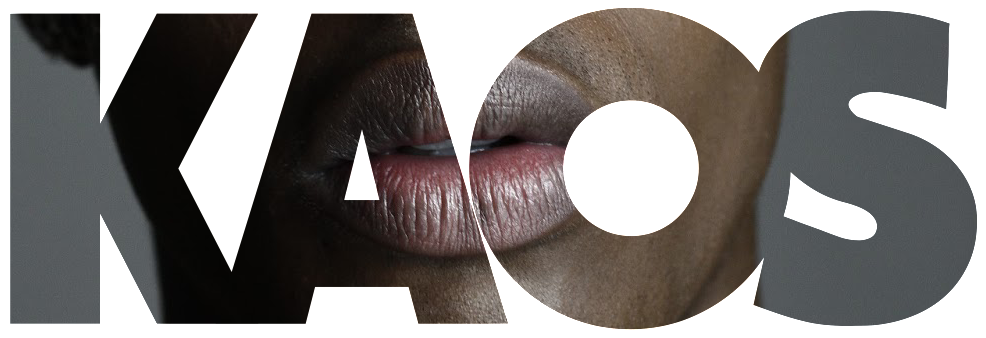




















.webp)


.webp)











































































































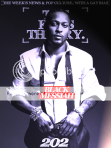
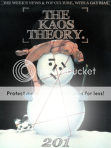




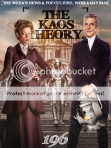

















































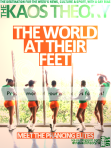






























































































































































6 comments:
This is an interesting article in that it speaks from an interesting cultural location, but I have to respectfully wholly disagree.
It's true that even the most shocking piece of art (& 'Twelve Years' is art, not kitsch nonsense like 'Django Unchained') will eventually be absorbed into mainstream culture & its shocks will be blunted, but what's the alternative? To say that to mention the history of slavery is to cheapen it, therefore let's not mention it? How would that work out in practice? The studiously enlightened who 'already know' all about slavery will continue to know; the less-informed won't know & won't learn because it would be vulgar to discuss the subject in an accessible way. In what way is that useful?
Have Schindler's List, the Pianist & the many films about the Holocaust inadvertently trivialised the memory of it? I would argue that they keep it present to us. Schindler's List hasn't been reduced to a comedy punchline.
Interestingly there's a whole vein of criticism of 'Twelve Years' where people are saying it makes slavery appear 'too horrible.' The fact people are able to say such a thing is, to my mind, a clear justification of the value of making such a film.
But it's people who are already interested in the subject matter that will go and see it. People who go and see Transformers won't go and see 12 Years A Slave - it's preaching to the converted, whereby those who already know all about slavery and its horrors are now simply watching it in the context of an entertainment - that is my problem with this movie.
Artists make the mistake that art has a greater reach - and importance - than it really does, because that's their world. If I were to ask a group of people who'd seen Schindler's List what it had done for their understanding or awareness of the Holocaust, they'd most likely answer that it had been a good movie, in which Liam Neeson had been particularly good. That's it. So the horrors of that atrocity have been used to thrill a movie audience, and no more.
If people are so interested in slavery they should read a book on the subject, not go to the movies to be entertained by Africans being whipped to death. Watching these stories primarily for entertainment is morally wrong, and calling it "art" doesn't put it beyond the reach of morality, of what's right and wrong.
This movie won't change anything. All it's done is used the subject matter for its own ends, and how is that any different from slavery itself?
Well, slavery uses other living people for the ends & profits of the slave-owners, which is wholly different from making a film about it. If it achieves anything, perhaps it reminds people not to sentimentalise the horrors of the past simply because they've become remote in history & 'quaint'.
You say the interested should read a book instead - but Solomon Northrop's original narrative of his life is a story constructed to shock & enthrall, just as the film is. In that sense it's 'entertainment' & 'torture porn' too - as was Harriet Beecher Stowe's abolitionist novel, Uncle Tom's Cabin. And these - and other slavery narratives - did have an effect on stirring up the indifferent against slavery via gripping tales.
But dare I say the Oscar possibilities have dazzled you? Here is a black director, descendant of slaves, electing to represent an aspect of that historical experience via a narrative by a black man who underwent such experiences - hardly a commercial prospect by intent, & with little in the way of white heroism to woo the white folks.
Are you also saying that other upsetting films such as Schindler's List or Hotel Rwanda (both themselves based on real events) are 'torture porn' that shouldn't have been made because they are 'entertainment'?
It's not that the films you mention are "upsetting". My point is that the very medium of film is inappropriate for telling these stories. Some subjects need to be treated with respect and reverence - and by reading a book, I mean an academic book, not a bodice ripper as Northrop's original account apparently is.
What did Hotel Rwanda do for us (Africans)? I've asked my students about Rwanda and what they know of it, and they talk about "oh it's the tribes fighting each other." That's the kind of great insight movies like Hotel Rwanda achieve.
What did Blood Diamond do to stop the horrors of the diamond mining industry? Nothing. It gave so-and-so an award.
These stories, they all become nothing but movie fodder, fuel for the chattering classes. They don't help black people now. If they made a movie of the kind of stories The Wire tells, it wouldn't get to the Oscars. It wouldn't get the recognition. 12 Years A Slave doesn't counter the sentimentality attached to past events, it directly thrives on it. Again, it does nothing or black people: whites will point at it and say, "Hey, look how bad they used to have it. It's not like that now, is it?" And yet we are still oppressed.
The "Oscar question" is something else. You talk about McQueen being a black director as if that validates the whole exercise. It doesn't. It perpetuates the injustice - that this is what black directors must do to fit into the Hollywood hegemony. This is what validates them, more stories about slavery.
"Hardly a commercial prospect". It's precisely that - this is exactly how mainstream audiences want to see black people.
I'm not sure why you see the Wire, the much-mentioned 'best TV series ever', beloved by the chattering classes (& criticised for racism by Ishmael Reed), as somehow being different in its multi-award-winning, much-ballyhooed-by-the-industry status from McQueen's film just because it's contemporary. To follow your line of reasoning, it too, being an entertainment & not an academic treatise, is mere distasteful poverty porn for the (white) chattering classes, won't change anything, is 'art' & won't make a difference, & therefore by your own logic it shouldn't have been made either.
I don't really have a response to someone saying don't read Northrop's original biographical account of being a slave because it's a 'bodice ripper' - & that they should instead read an academic book about slavery. I've done both, but reading the words of the actual person expressing himself has an emotional engagement that academic writing by definition doesn't have. And since caring about something requires an emotional response, it is actually a necessity to have emotional engagement.
You say Steve McQueen as a black director had to make a film about black experience to fit into the Hollywood hegemony, yet his previous features were about Bobby Sands,(Irish), & a sex-obsessed white guy in LA, & were successful enough to enable him to raise money for what was seen as not appealing box-office. He could have carried on perfectly successfully in that vein.
But to reiterate: do you think Schindler's List shouldn't have been made?
The assumption that people should read academic works, too, is the kind of overreaching statement that makes no sense. It is a classist position to be sure since it presumes equal access to information even as it suggests those unable to do so are in some way deficient, that their way of relating to a work are inferior or irrelevant.
With all due respect, the author of this piece really has no space to talk about the merits of either the film or the book. To willfully choose ignorance of a work in this case is to perpetuate historical erasure. It's all well and good to take the position I've 'heard enough,' but I would argue that doing so divests the severity of those continuing to struggle under the legacy of slavery.
The author, too, seems to be under the impression that this film was made for white audiences. I would argue the opposite, actually. It's a movie that everyone needs to see since it's rare that films with black people in them don't have white saviors intercalated into them, casting us as victims. This is also not a film that romanticizes the past; it presents realities.
McQueen has stated that the ONLY thing he wants this movie to do is make first-hand slave accounts regular components of school curricula. So when you say that the objective is money or prestige, I really need you to take a step back and REALIZE that this man is actually advocating for institutional policy changes.
As a young black man, it was rare that I was provided schooling centering on these experiences. I was fortunate enough to read Roots in middle school and equally fortunate enough to grow up in a suburb that was progressive enough to have African American Studies in high school.
Leaving that theatre, my initial experience was a kind of emptiness. I expected to feel a kind of elation and catharsis and there was none and I became intimiately aware of a distaste for white people and especially white ignorance. So yes, I absolutely do film that in being apolitical but entirely historical this film serves purposes, especially to the black community in the states. While films about slavery may not be important to you, they are important to me, especially when an auteur I admire and respect is the one asking white people and black people alike to look at this shared history and ask them in what ways are they contributing to the perpetuity of racial inequality.
Post a Comment